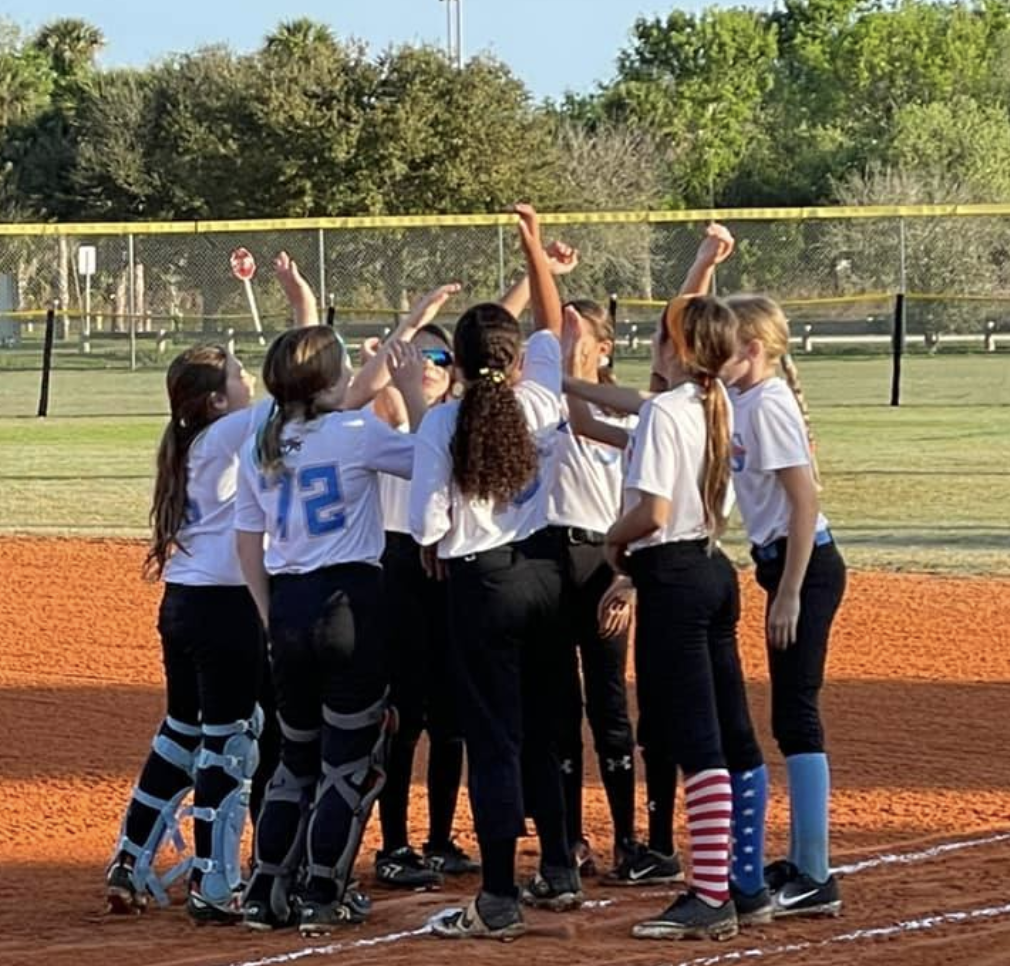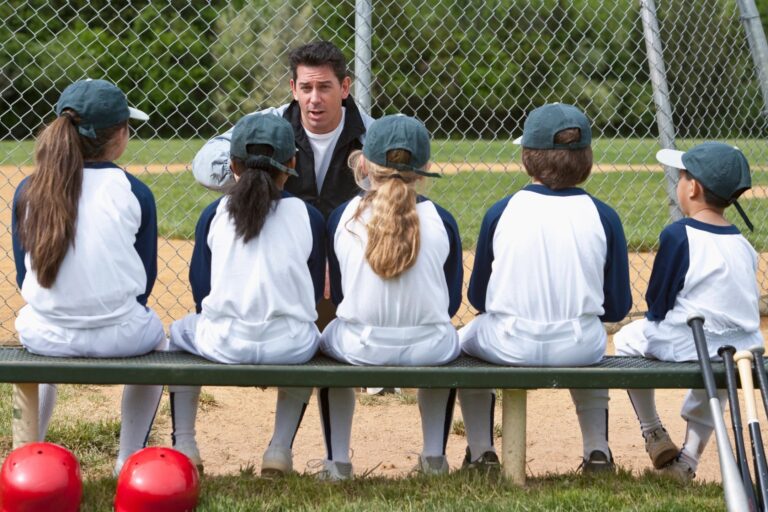Parents Are the Worst Part of Coaching Youth Sports
(But not for the reasons you may think)
As someone who is not only a head (team) coach, but a private (one on one) pitching coach, I hear wild stories almost every day. I hear stories of irate coaches, horrible umpires, difficult kids, and of course, the parents. While people may disagree about umpires, governing sanctions, rules, it seems like the common understanding is that the athletes themselves are great but the parents suck.
If you look on any softball forum or softball Facebook page, you will undoubtedly hear the common trope that the parents are the worst part of coaching youth sports.
- “I used to coach but the parents ran me off.”
- “The parents are just awful.”
- “Everyone thinks their kid is the best and the parents are delusional.”
I’ve even had ex friends of mine try to talk me out of coaching because of “how bad the parents are”.
I want to share how this hasn’t necessarily been my experience. While I do think that navigating the parents is the hardest part of coaching youth sports, I don’t blame the parents themselves. I blame me.
Let me explain.
Before I got sober and before I got into therapy, I used to do a lot of blaming of external circumstances. I think all humans have a tendency to do this. We also all have the ability to get emotionally triggered or “riled up”. In this post I want to offer the idea that my emotions are my responsibility. And that while dealing with large groups of people can be difficult, I have much more control over my emotional experience than softball forums would have me believe. (Hint: people outside of me are not the problem)
One of the best things therapy taught me was to question the stories/ things going on in my head. So whenever I hear something that seems very definite, I like to question it. “The parents make coaching miserable.” Well…is this a 100% true statement?
In my current situation, no. My parents (on all SIX teams) are absolutely amazing human beings. They are also all unique human beings with issues, problems, and situations that most coaches probably aren’t always privy to.
I want to offer this. It’s not sports parents that are difficult… its ANY group of humans who come together for an extended period of time to accomplish something. Have you ever attended a PTA meeting? Or a City Hall meeting? Have you ever been a part of a business meeting where 10+ people had different ideas and views?
If we talked about managing employees the same way we talk about sports parents, we would be laughed out of the company. “These dang employees have their own ideas, needs, and wants. Why can’t they just show up to work, not question anything, and shut the hell up?”
That would be ridiculous in a work setting. Employees have certain needs, desires, requests. In a good work environment they would share these with their manager and work out a plan. Sometimes management makes adjustments, other times they cannot and the employee finds a different workplace. There are expectations set up on both sides, and a lot of these are negotiated prior to an offer letter being signed.
If we don’t expect any other group of people to just “sit down and shut up”, why are we expecting our parents (the lifeblood of the organization, and ultimately just as much our customers as our players are) to do the same? In the workplace that would be considered abusive. On the ball field, that trope is normal.
Am I saying coaches should bend to every wish and whim? Of course not. And neither should a manager at a company. There is a difficult dance between maintaining boundaries and making the final decisions in the organization’s direction while still accepting feedback and encouraging communication (and sometimes conflict). I am offering that the same ideas we apply to business, we apply to a softball team. I am offering that we attack a coaching position the same way we would attack being a CEO: using servant leadership and understanding the athletes as employees and the parents as customers. (Truly both groups have a little bit of each in them).
Group Dynamics
When creating a new group (like that which happens on a softball team) there are a few important pieces to understand. The first is group dynamics.
There are stages to a group. They are: forming, storming, norming, performing (and sometimes adjourning). Understanding these phases is crucial to having a good experience with your team (the athletes AND the parents). If you understand how humans typically behave, it’s easier to not take offense and to be prepared with tools to help navigate conflict. This is usually the first conversation I have with a team. “Hey guys, heads up, we are in the forming stage. This is also the honeymoon stage. Everyone is happy, everything seems new and exciting. But please hold on, we will enter the storming stage. Expect there to be conflict with me, each other, and with other teams.”
I think many people are blind to the fact that the storming stage is normal and WILL happen. As leaders of a group we don’t know when it will happen, but it will definitely happen. How many times have I seen a new team form (usually breaking off from another org or coach) and in the beginning, everyone is thrilled. Parents are happy, kids are excited. And then… something happens. Either a kid is not playing well and gets sat on the bench. Or the team gets destroyed and goes 0-4 in a tournament. Maybe a group of parents starts to gossip. There is always some type of conflict. The teams and coaches that prepare for this conflict will fare better than the coaches who are expecting all sunshine and rainbows. (Or the coaches that act like dictators and don’t allow their coaching to be questioned). It reminds me of people who leave a romantic relationship expecting the new person to be their perfect soulmate, only to find out they are human and actually have flaws (gasp).
Relationships are just downright hard sometimes. Whether it’s romantic, platonic, the kids you coach, or the parents. Humans make things tricky, messy, difficult, and are laden with conflict.
However conflict can become the glue that brings the group closer together- if you let it.
Internal Triggers and Shame
What is a trigger and what are limiting beliefs?
This portion could easily be another blog post by itself (and maybe it should be). But all humans have different aspects of us that make us who we are. And we certainly all have emotions. Based on what happened in your past, different events will affect you in different ways. Most of these emotional triggers are rooted in our self concept (beliefs… sometimes limiting beliefs). Some are rooted in shame.
I’ve never been more triggered than while coaching youth softball.
Coaching is stressful. Besides the obvious pieces such as teaching the fundamentals of the game, organizing practices/ games, and creating lineups… dealing with player and parent emotions is also incredibly difficult. When I’m coaching I feel like a circus performer trying to make 10 plates spin at once.
On top of that, post tournament blues and anxiety are a real thing. Sunday nights used to be the absolute worst time for me as a young coach. (And I still go through this sometimes if I don’t have good self care in place). I am filled with more questions than answers.
“Did I make the right calls?” “Could I have done better?” “Was I too tough on them?” “Are the parents mad?” “What do we need to work on in practice this week?” “Am I failing them?”
These thoughts range from the best case scenario “Things are going SO well, I’m so pumped, they did amazing this weekend!” to the absolute worst case “Everyone is going to quit, why did I decide to coach this team? I’m the wrong coach for them, I don’t know what I’m doing. I can’t do this.”
Even after many years of coaching, I still experience an overwhelming amount of self doubt from time to time. I used to think I was alone in this. Turns out, it’s pretty normal. It’s normal for us to have periods of self doubt, to question what we are doing, to be overwhelmed, and to feel shame. Brene Brown has done some amazing work in this area. She defines guilt as the idea that “I did something bad.” While shame is “I am bad.” Both can be normal to feel, however shame is usually counterproductive to being a strong and confident leader. Shame is uprooted when we can get to the truth of the matter and also when we talk to others. I have “my people” I go to when feeling shame. I trust that they will tell me the truth. They tell me when I screwed up and when I need to apologize. They tell me when I did great and I’m just being hard on myself. Everyone needs “their people”. When I’m deep in shame, ANY type of parent feedback feels absolutely awful. But this is a Keeley problem, not a parent problem. They should not be afraid to discuss how they feel on the off chance it’ll hurt my feelings.
Coaching can also cause us to face our fears. What if a parent is mad at me? How do I explain playing time to them? What if they gossip about me behind my back? All of these are very real things that happen when coaching. Without proper tools in place, handling conflict with parents can destroy even the strongest coach.
Every single insecurity has been picked at when I’ve coached. Events or ideas that I thought were long since buried tend to bubble to the top either when I’m coaching 3rd base or when I’m at home alone and thinking about the previous weekend.
I can either use these triggers as opportunities for personal growth by practicing handling conflict, creating/ enforcing boundaries, healing shame and past hurts, or I can shy away from these opportunities and miss some areas for improvement.
Moving Forward
So what are some things coaches can do to navigate the complexity that is dealing with parents?
Have a parent meeting (maybe more than once)
Having a parent meeting is crucial. Let the parents and kids be a part of this process. This is where boundaries and expectations are put on the table. Let them offer input! With my teams we usually have some sort of “Agreements” session where we decide on how to create the “container” that will be the team. People work best when given guidelines. This is the time to establish what the season/team will look like.
Implement the 24 hour rule
The 24 hour rule is the simplest and smartest thing you can do as a coach. It gives everyone time to calm down and approach the issues with a clearer head. Even as a coach it’s important for me to come back to an issue after emotions have subsided. Sometimes, I’ve found that I completely change how I feel about something- even just 24 hours later. Give everyone the opportunity to act as their best selves when it comes to conflict.
Head them off at the pass
Most coaches I’ve seen wait too long to approach a subject. This was a mistake I made early in my career (and still sometimes do of course). If you know a situation could potentially bring conflict (or something is bothering YOU), reach out. My favorite Brene Brown line I like to use is “I have a story in my head that _____.” This opens the door for direct, but also kind communication. It takes responsibility and doesn’t feel blaming. For example: “I have a story in my head that you are frustrated with your child’s lack of play time on Sunday. Is that accurate or am I just making things up in my head?”
Check in with your assistant coaches
Use your assistant coaches for emotional support! Also, rely on them for input. I ask mine all the time “Did I screw that up?” Or I ask them to challenge my thinking or my plan. Sometimes I’ll get so wrapped up in coaching a game that I forget to move the kids around more. If I made a promise to develop an 11 year old in the infield, I need someone to remind me and hold me to that agreement.
Invite conflict
This is the hardest one. However it is the most rewarding. I’ve stood in awe of the best leaders I’ve known who invite conflict. It is not comfortable and sometimes incredibly messy, however conflict is vital for growth. There is no way to have a softball team without some kind of conflict. The more we accept this fact, the better coaches we become. We also get to share the message with our kids that conflict is okay, standing up for our boundaries is important, and emotional regulation can help us navigate conflict while staying in our integrity. I think parents and coaches have a phenomenal opportunity to show kids that we can stay calm and deal with conflict in a way that leads to a positive outcome.
Also, it is incredibly important to be honest. Parents do not know what is going on until we tell them. Maybe we don’t trust a kid in a certain position. Maybe a kid gave us an attitude. Parents need to know these things to understand our thought process. I’ve seen some coaches lead parents on and make false promises just to keep kids on the team. It never works out. Be honest with your thoughts. If a kid will never pitch on your team, don’t act like they may get pitching time! Don’t tell white lies in order to keep a team together. It’s always better to tell the truth and deal with the consequences than to lie or misrepresent yourself/ the team in order to get your way.
Finally, we can gain a lot of information from talking to the parents them. Maybe things are tough at home and thats why the kid is not playing well. Maybe she’s recovering from being sick. Communication is always massively important. To shun any kind of communication with the parents is risky and probably not super effective long term.
Do self care/ have a support system
Without therapy, I would be dead in the water as a coach. I need someone to help me navigate through my past hurts so that I can stop connecting them to current conflict in my life. If I’m not careful, one simple parent critique will somehow remind me of not being good enough (just like I wasn’t “good enough” growing up) and I will react instead of respond. Suddenly the parent who just wanted to understand why her kid was playing the outfield becomes the recipient of decades old hurt. This is not the type of leader I want to be. I want to be a leader who is able to answer questions without letting conflict make me defensive or miserable to be around.
In closing
The jury is still out on whether the kids or the parents are the hardest parts of coaching. Maybe they are equally hard. I still think it is the absolute best part of coaching and the biggest growth area of my life. The hidden gem, the wonderful gift I get from coaching (besides getting to hang out with kids all day- I mean come on I’m so lucky) is that I use it as a place to practice what I’ve learned in therapy and personal growth. Am I perfect? No, I fail all the time. Just like in softball. And coaching can be very, very hard. However,
“It’s supposed to be hard. If it wasn’t hard, everyone would do it. The hard is what makes it great.




I loved the concept that parents should be listened to & treated fairly, the way a CEO would have their managers treat customers. I’ve also experienced the ” Forming, Storming, Norming, Performing”, so that’s helpful to hear how expected/normal the Storming is. Overall, the piece is a good reminder of how each of us can practice having patience & reasonable expectations with difficult groups in reaching common goals. Coach: thanks for being a good role model to both players & parents. We’ll try to do the same.